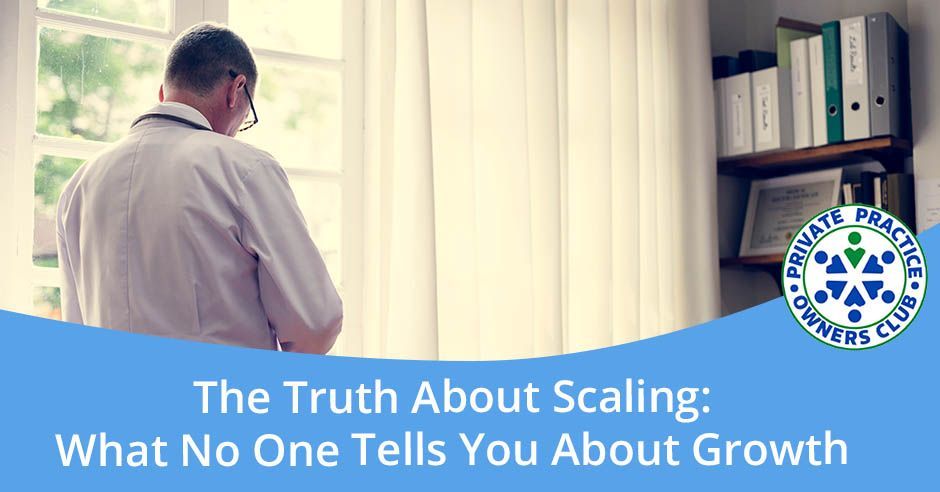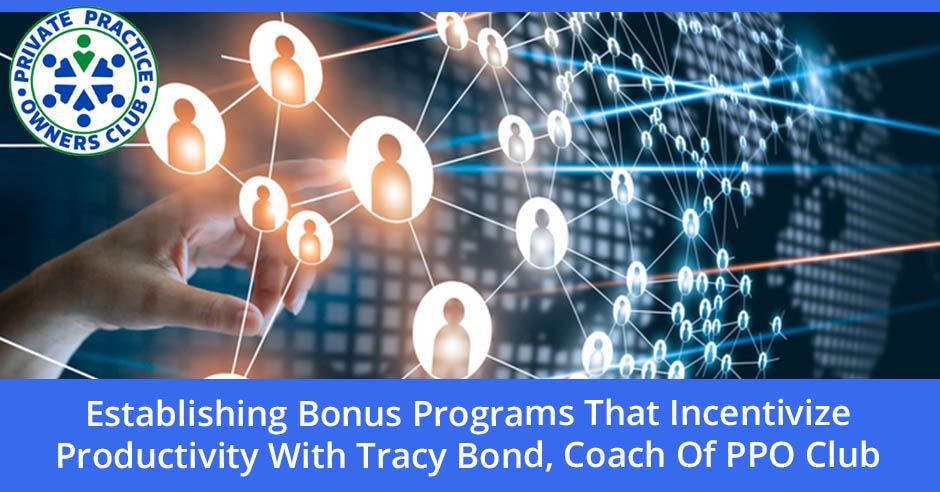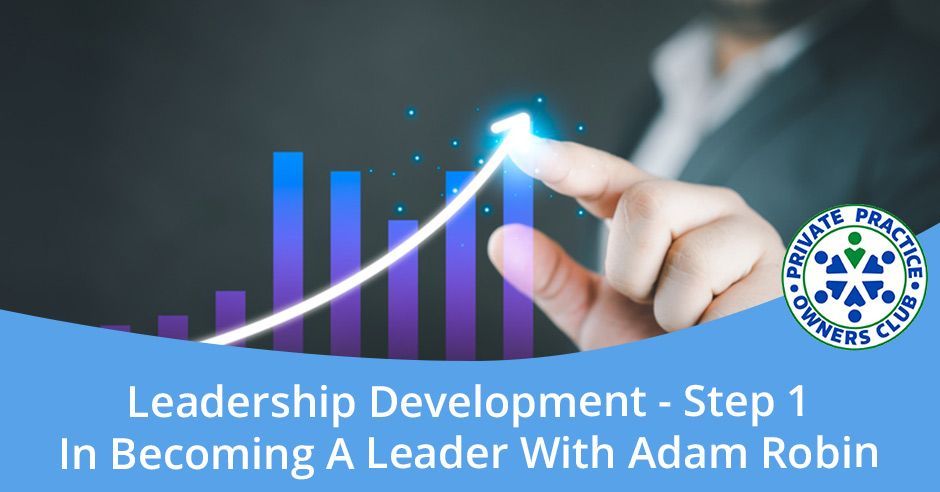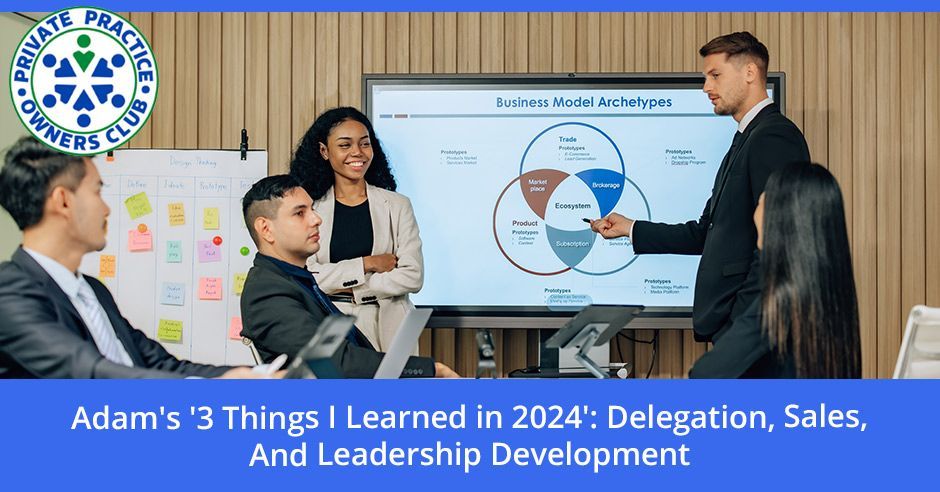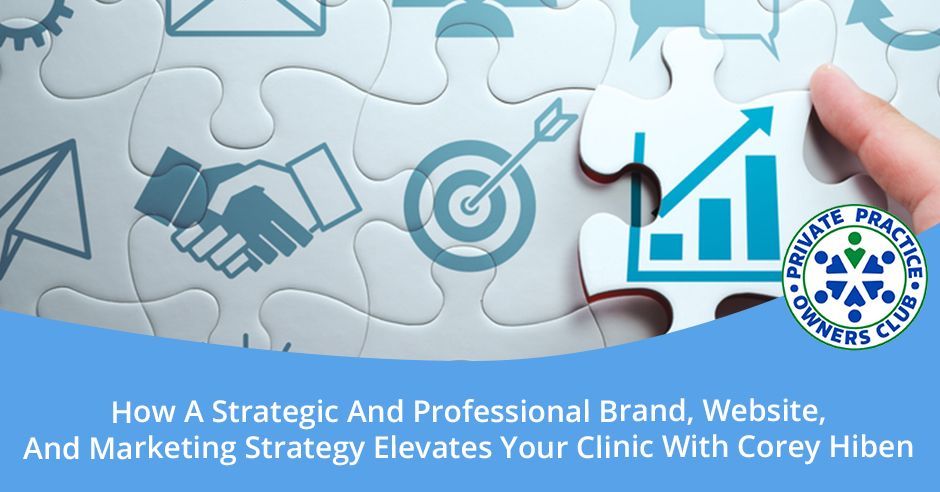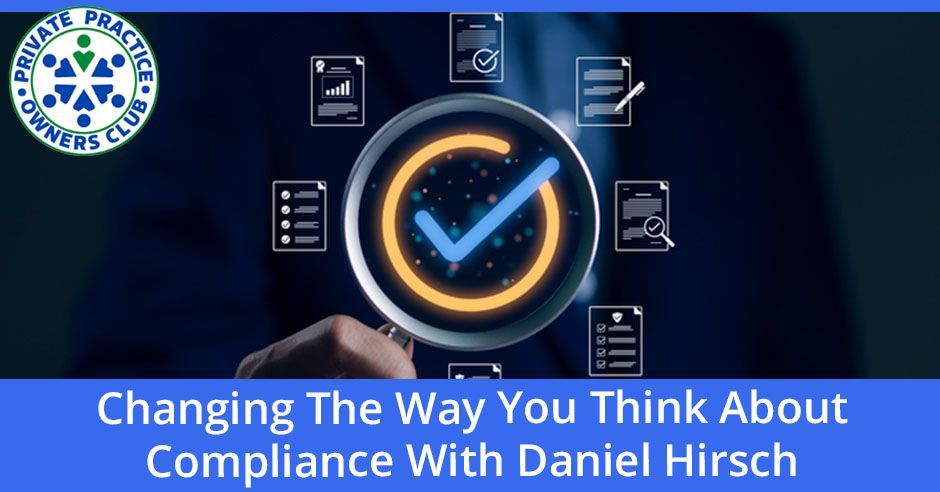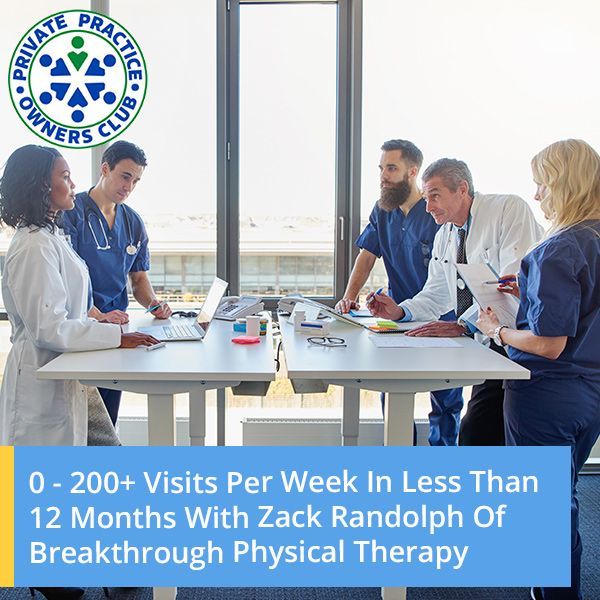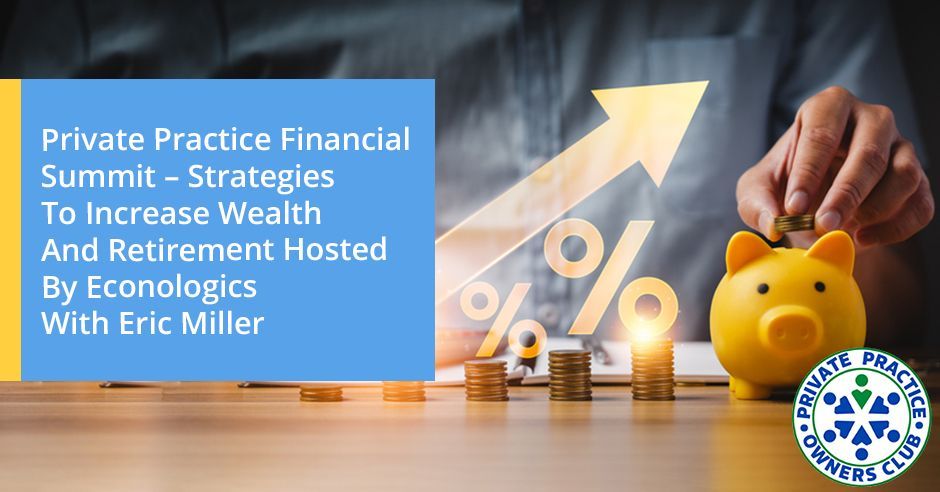Sharif Zeid is a business director at Empower EMR, the all-in-one PT EMR built around automation – on the web at empoweremr.com. He has been in the rehab tech space for almost 20 years and has worked with tons of therapy practices over the years. His drive is to help every practice leverage tech to strengthen every aspect of a modern rehab practice’s operations from core things like EMR, scheduling, and billing to the cutting edge like powering a modern patient experience and driving automated marketing efforts. He loves working with people and treating every day like an opportunity.
Artificial Intelligence (AI): How To Use It And What To Beware Of With Sharif Zeid Of Empower EMR
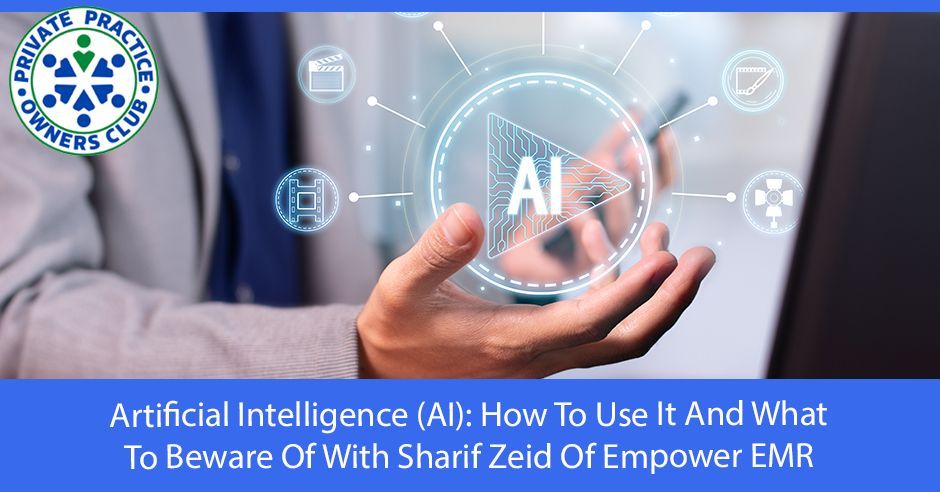
Are you leveraging Artificial Intelligence (AI) to elevate your Private Practice? Artificial Intelligence (AI) can help reduce burnout and create smarter workflows.
In this episode of the Private Practice Owners Podcast, Nathan Shields welcomes Sharif Zeid, CEO of Empower EMR, to discuss the huge impact that AI plays in your Practice. They explore ways Practice owners can use AI to save time, improve documentation, and attract clients while addressing the challenges and opportunities AI brings to your Practice.
Episode Highlights:
1. Start Small
o AI tools can simplify documentation, reduce burnout, and boos provider satisfaction.
2. Creative Application
o AI can optimize website content, marketing campaigns, and even social media posts with ease.
Tackle Compliance Challenges
1. Leverage AI to enhance compliance, ensure accurate coding, and maximize reimbursements.
Don't miss this episode of Private Practice Owners Club Podcast – whether you're new to AI or curious about its practical applications, this episode breaks down the build-up and gets to the heart of how AI can simplify your workload and expand your Practice.
Visit our Linktree for our Coaching Services, Free KPI Dashboard, Facebook Group, and Annual Strategic Planning Services: https://go.ppoclub.com/linktree-podcasts
Love the show? Subscribe, rate, review, and share! https://ppoclub.com/
---
Listen to the podcast here
Artificial Intelligence (AI): How To Use It And What To Beware Of With Sharif Zeid Of Empower EMR
Introducing Sharif Zeid
Hello and welcome to the Private Practice Owners Club. I'm Nathan Shields. I got one of our sponsors for the year, Empower EMR, and Sharif Zeid, the founder and CEO of Empower EMR joining us. Thanks for joining us, Sharif.
It’s nice to be here. Thanks for having me back. I appreciate it.
You've been on the show a couple of times already. Thank you so much for being a sponsor of our first-ever annual conference back in September in Clearwater. It was great to have you there and have your presence and support.
It’s my pleasure and as a plug, I know there are more events to come. If you're tuning in to this and you didn't come to Clearwater and you're contemplating what to do for 2025, whatever Nathan and the team put together should be on your list, wherever it is. Even if it's in the frozen tundra of Alaska or something like that, you should go. It's that good.
We wouldn't do that to people unless it is in the summer. That would be an appropriate place, but it's still a haul. Thank you for the plug. I appreciate that, and that's very thoughtful. It's good to have you on and it's good to catch up with you a little bit. Specifically from your perspective, what we're talking about today is artificial intelligence AI and its influence on our industry, on our business ownership, and in general, how it can affect us both positively, and what to look out for negatively.
You’re coming from the tech side of things and having that tech background over the past number of decades, you've been in the physical therapy space specifically for a couple of decades already. You can see where it's coming from, where it's going, what to look out for, what to be mindful of, and what to look forward to. I'm looking forward to this conversation because of your perspective. Where would you like to start with this conversation? Do you want to start with where you came from and move forward chronologically?
That could be a great place to start. To give you my perspective, even from the tech side, it seemed like you went to bed one night and AI didn't exist, then you woke up the next morning at 8:00 AM and suddenly everything was AI. Your waffles had an AI logo on the front of it. You're like, “How does this make any sense? These are waffles.” It's interesting and this is very recent. In the last couple of years, if you read any news in any major publication newspaper, again it took off like wildfire.
AI isn't exactly new, but the presentation and certainly the applications of it and the accessibility of it today are things that have changed dramatically in the last couple of years. The seminal moment in this story was Open AI, which is a company releasing Chat GPT, and then all of a sudden, it was on everybody's computer. Previously, you would see it very locked up and maybe in a government-type application, a military-type application, or for very large corporations.
Another part of this whole thing is that previously, they were often trained on smaller sets of data compared to what's considered a large set of data today. That's because whoever was running it was training it. Now, you're dumping all kinds of stuff into it from all corners of the web. Now, all people are using it. It got expansive and it's a natural evolution of the last cool buzz tech word, which was big data.
If we were doing this show, five years ago, everybody was like, “We're doing big data.” I always felt back then that many people knew the term big data. Nobody knew what they were doing with that or how to use it. Many didn't have enough data to be qualified as big data. Walmart has big data. Google has big data. Do you have big data in your practice? Probably not, but you now have access to it at least in an indirect way through some of these AIs.
It's cool and a little bit scary. There are ethical questions, logical questions, and business questions. That's what I hope we get into a little bit. We’re trying to make sense of all this and take it from this huge headline you're reading in the newspaper to how could I use this? Maybe where should I not? Maybe where should I pump the brakes a little bit and either wait for it to evolve or simply avoid it for certain purposes? It's incredible and things move so fast now. What can you do?
Getting Started With Artificial Intelligence
Maybe that's a good place to start. If you had a room full of private practice owners or small business owners, where would you recommend they start? If people are saying, “AI is the future. You need to learn how to use it.” For those people who maybe want to dip their toes in that pool, where would you recommend they start with it?
Here's what I would say. Let's say a new clinical technology came out. Forget about AI. Let's talk about what PT is known, and the clinical side of things. If a new machine comes out or a new technique comes out, the first thing is always some measure of caution. We don't want to do any harm. We don't want to hurt a patient or anything crazy like that. We don't want to hurt our business. We want to be naturally skeptical about things that are out there.
Part of AI is that it needs tons of data to be useful. One thing we certainly don't want to do is either inadvertently or purposefully expose data to an AI that we don't want. For example, a patient's information. That's a no. We don't want to do that unless we have some confidence that this thing is meant to be taking this and that it's not going to then spit that out to somebody else's answer two hours later. Nathan has the following thing going on within ten minutes because it just learned that. It's AI. It's smart, but it's dumb at the same time. It doesn't have discretion necessarily.
We do not want to inadvertently or purposefully expose data to an AI we do not want.
This is all so rapidly evolving. There are AIs now that can train on large sets of data, then you can have some measure of privacy. Many companies like ours and others are building around foundational elements of AI technology and then presenting you with something ready to use, and we've helped to handle some of those things.
That's where I would go. Where you start with this is commercially available AI tools. Right now, Scribe is one of the biggest areas of interest and intrigue. How many podcasts have there been on your episodes? If you are talking about documentation hassles and burnout, and all these sorts of things, Scribe, in my humble opinion, is one of the most meaningful potential movements in the last even ten years on moving the needle on documentation from a timeline.
There are lots of great opportunities. You’re not going to build your own Scribe. Your listeners are PTs. They're not technologists. They are not going to build it, but there are lots of commercially available options and rapidly expanding their abilities and capabilities. That's a great place to consider starting. Let's put that on the clinical side.
Forget about clinical. There are all these other functions in your business that can benefit from AI and don't have to deal with the HIPAA aspect or the compliance aspect. For example, let AI write a job description for you. Maybe give it a few things. Let it spruce it up for you or let it write from scratch. Maybe help with your website content.
Have it produce a blog article with it or clean up the copy on the homepage of your website and things like that. There are some nice modest ways that aren't like a six-month commitment or a $6 million commitment that you can jump in. Do it for your jobs, do it for your website, try Scribe out, get some of your PTs going, and then start to see some actual meaningful changes in your day-to-day.
When we initially considered how AI might be implemented into the world in general, we immediately thought that it was going to automate industrial processes. Robots are taking over low-level blue-collar jobs. Some people are surprised that it's doing the opposite. It's taking over some of the creative roles in our society, like content creation, art, music, etc. AI can produce what used to be creative projects and do very well at it. I thought that's where you're going to go initially.
I love that you brought up Scribe. If someone were to ask me where I should start, I would say start creating marketing content with the help of Chat GPT, Claude, AI, or whatever is out there. I personally like Claude better than Chat GPT for some of that stuff, but to each their own. It doesn't matter. You can do either the free version or you can do the $20-a-month version, which allows you to upload some of your content and ask for recommendations and stuff like that, and even maybe create some design work.
There are some great opportunities with AI that can take a lot of brain energy and time off of your plate by simply creating blog posts or creating content for a newsletter. As you said, upload some of the content from your website and say, “How would you recommend changing this to improve my SEO?” You guide and direct it for the things that you want to get from that content.
I know there are tricks and certain prompts that will help it create things better for you. That might take a little bit of training but it's worth doing a little bit of Google research to say, “How do I properly prompt my AI system to give me what I want? What are some of the prompts that I need to know and leverage to get the best responses?”
That's what's helped me, “I need to do a presentation on blank. Give me the top 4 or 5 things that I should cover that people are worried about in this industry. Give me a fifteen-minute presentation.” You have to have at least the outline right there to work off of, and it does a good job. You're going to have to customize it a little bit and that's fine so it doesn't sound like a robot speaking. It is a place to start.
I also appreciated that you said using the AI businesses that are out there specifically in our industry. I've had both Prediction Health and Comprehend Health on the podcast in the past. They're worth looking into to improve your documentation. We all know that the number one headache in the industry is documentation, among the providers. Providers don't want to go home with documentation. They don't want to be doing it on the weekends. They would love to walk out the door at the same time as their patients with the other documentation complete.
These dictation Scribe services that leverage AI is a great way to do that. They're worth the money to make sure that your notes are done in a satisfactory way. They'll also review for compliance. They'll also make recommended CPT code changes to your benefit. If their activity is better than a therapeutic exercise based on your documentation, it can recommend that, and the reimbursement is greater. Those things are ways that we can leverage AI as owners to benefit us and make things easier for us and our teams. I love that you brought up both of those aspects.
Utilizing Generative AI
It's amazing and there are a couple of things I want to key in on there. You bring up a good point. There are various AIs out there. If you're going to go with a very straight Generative AI as it's called, it is the part of AI that generates text, copy, images, and things along those lines. That is what everybody is talking about these days with AI. There are other kinds of AI and they're not as applicable to as wide an audience, which is why you hear about them.
If you go to some of these, like Chat GPT, Claude, Grok, and all these different ones, what I would say in terms of preferences is you learn which one you like. What's underneath that is called an LLM, which is a Large Language Model. That's how it learned. There's a reason why you might like one better than the others because it’s like it went to different schools and it got a slightly different degree and you jive with it, you like it, and you feel like you're hitting it off with them, so you made a new friend.
To your other point and the other one I want to mention, when you use one of these straight-up Generative AIs, it gives you a box and you type in whatever you want to enter and then it gives you back something. What you want to do is think about it like a smart person, but they have to be told as specifically as you can what you want them to do within reason. If you ask it to write something, you can try interesting things like, “Make it upbeat” or “Use a tone that's serious,” or whatever you want to do.
You can try it a couple of different ways and find your voice. Your website might have a mantra. It's like an upbeat website or the verbiage is more straightforward, formal, and literal. You find whatever you want. People use it to write emails too. They find the same concept with it. I love the idea of marketing stuff. I come across unfortunately a lot of sad websites that need an update, whether it's a big update or a little update like it hasn't been touched in years.
It’s a great shortcut. That is how I look at it. It's not going to cut out the work and do it 100% because it's unlikely that what you get out of it will be immediately ready to post. The better you get at it, it could be very close with a little bit of editing, a little bit of cleanup, and making sure it's saying what you want it to say, then you copy and paste.
The excuses of not updating or keeping your website up-to-date or putting something fresh on there every once in a while diminish a little bit. Again, no HIPAA there and no stuff, so it's easy to go. I do think paying for some of them is worth it if you're going to get into it. Trying the free option is a great way to dip your toes in and see if you can find a use for it in your day-to-day or week-to-week business life.
One thing that was helpful for me is I was promoting something and I needed let’s say 10 or 12 posts for social media that I wanted to put out regarding something that I was selling. I said, “Here's what I'm selling. These are some of the benefits of it. I want it to be a focus on blank, blank, and blank. I need ten posts.” It shouts out ten of them. I liked maybe 4 or 5 of them. I was able to say, “I like these 4 or 5. Create 4 or 6 more of these types. The time it would have taken me to write out those ten posts comparatively, I saved so many hours.
If you harken back to your days in college or high school when you had to write a paper, starting is often the hardest part. Even if it gives you a spark, that is a huge thing. Even if it's imperfect but the idea is not bad or this first sentence is not bad, it's so much easier to write five more lines once the first line has been written than it is to look at a blank Word document and say, “I'm going to write this thing from the ground up.” It's tremendous and you can do this today. You can jump on whatever, try it out, and see how you’re doing.
The art of the start is often the hardest part.
By the way, what you're talking about with how you prompt the AI is becoming a job. It's called a prompt engineer. That's an actual position that people are now studying in college. These folks are probably more on the other side of building how the system responds to prompts, but they also create inputs. It can get that complex. It's not going to be for this application. You keep it simple. A few little tips though on telling it what tone you want or if you want it to be long or short, and it will get you even closer to that camera ready, ready to go, and ready to be published.
We can take it even a step further. For those people who are looking for providers, why not throw it out there like, “Give me a four-step recruiting process that will provide me an ideal candidate with these values. These are some of the benefits I provide for my opening. Give me an appropriate marketing strategy to find this person.” It's going to give you some ideas that you might not have thought of.
I remember it has read ten billion resumes or job postings across every industry. You get a flavor of things. You're like, “Let me look at my competitor across town or state. What did they write in their job post? Your world is so much bigger. That's a tremendous benefit of it.
You can do that for recruiting. You can even say, “Build out a marketing strategy for me for the next year. What do I need to do to get more patients in the door? What are other providers doing? What are some of the avenues that they're using to find new patients?” Those are ways to use it so you don't have to come up with your own stuff. I have stuff out there but you have to find my stuff, whereas you can just punch it into Chat GPT and it'll bring it to you.
Please, if you're listening, stop listening and go do it. Try it. You have nothing to lose. If you don't end up loving it or it doesn't produce anything for you, that’s fine. You're talking about ten minutes. Jump on and ask any question, or better yet, if you have kids as I do, they have an endless number of questions that we seem to ask like, “How big is the ocean? Why is it this way? Why is this thing?” Chat GPT is interesting in giving answers, as well as other tools as well.
AI In The EMR Spaces
Tell me a little bit about how AI is influencing the EMR space.
There's not a corner of this space that isn't being touched at least tangentially by the concept of AI. There is a tremendous amount of interest from clients and others who are maybe considering our product for their practice. I do think there's some learning curve happening in terms of understanding what exactly is this thing. “In terms of practical applications for my practice, what does it mean?” I also think there's a cost aspect to all of this as there is with anything, and trying to figure out where the value is going to be for people.
It's great to read about it in the newspaper and this is going to change the world. At the end of the day, we have practices, we have considerations of staff, we have considerations of budget, and we have considerations around what can be implemented in a practice, in what time frame, and so forth. Right now, if I were to characterize it, I was here when EMR became a thing. I converted hundreds or thousands perhaps of practices from paper to electronic. That was such a Wild Wild West notion. Practices were taking on an expense they never had before. I’m replacing paper and pencil with a bill. Why should I do that?
There are some elements that I observed back then from early adopters to the curve of adoption where some people are way early in raising Chat GPT the day it came out, then you got the middle where a lot of people will start to adopt because they become more standardized, then you have the late adopters who are just hanging on. It's like finding a unicorn practice today that still writes notes on paper. They do exist. It's not a lot of them, that's why we call them unicorns, but every once in a blue moon, we'll hear about that.
We're very much still in the early part of that curve. For the industry itself on the tech side, it's trying to find out where we can make meaningful advances for practices, and how we can make those in a cost-effective manner. I'm finding that, as usual, the market is going to do what it wants. There are some gimmicky things personally. I don't think of that as meaningful and they get splashed out all over the place.
There are some true value adds that are being done out there. You mentioned a couple of them. We talked a little bit about Scribe. Compliance is a tremendous area, where you're talking about the traditional chart review model. Nathan pulls ten charts a week or whatever, or worst case, Nathan never pulls any charts and never does any compliance. You can replace that with, “Can an AI give guidance?” That has already evolved in the last year.
We're now backing into not just retrospective but looking back at notes that have been signed, but also in real-time, providing feedback about whether you are doing a good job with your notes or your coding is more correct. It's not the Wild Wild West, but maybe the Gold Rush now. The Wild Wild West was the opening of the frontier, then you have everybody saying, “There's some value here. We have to find where the value is.”
Our commitment is to say, “We've been in this space for a long time. We understand the plight of the PT practice. They're getting squeezed from a lot of different places. Reimbursements are a constant conversation, but then there's the idea that we have to make headway on this burnout problem with PTs. We have to make headway on our compliance.” The last thing I'll say and just broadening it out from EMR is that all of healthcare is dabbling in AI in some form. That means insurance companies too are implementing their own stuff.
The downside for practices is they have more data because they get to amalgamate everybody's data. It'll be interesting to see how that plays out over time. AI is bumping into each other. It'll be interesting to see how large industry groups can help be a counterbalance to some of that, or counterweight, by helping aggregation and things like that so that there can be a response and a balancing of that relationship, which has forever in a day been a challenge, just in different ways now. It's a potential technology imbalance.
It's a great time. It's an interesting time. It's an active time, but it's also a time for saying, “What does make a meaningful difference?” Just going on and spending extra thousands of dollars a month, a year, or whatever, if it doesn't provide any meaningful change for your practice, it’s probably not the right thing to do.

As you mentioned earlier and to reiterate, you started from a Scribe perspective. It is a fairly simple way to get into it clinically. Back in the day, I used to use Dragon in transcription and voice-to-text stuff. That was helpful. It had its issues but it's so much better now. The fact that AI’s learning language model can learn your language as you're doing the documentation, and then write how you tend to speak and learn that and get better over time can make it very customized to you or any other providers specifically.
It's a great place to start. When you can consider that insurance companies are going to be using AI to their advantage, we better be getting used to it to combat whatever they come up with because we're going to lean on our EMRs and your amalgamation of data as well to say, “This is what the insurance companies are doing. This is what we need to do to respond to that,” and make that an AI response across the board.
You keen on an interesting topic which is true for all technology but especially for AI is. There's often an expectation or desire that if it's not perfect, then I shouldn't implement it. I should wait for that adoption curve until it's perfect. I'm always trying to evangelize this position to folks, which is why incremental gain is so important. Let's talk about incremental gain in a couple of different ways.
One could be that you have 10 PTs in your practice, and 6 of them take to this new technology and 4 don't. You should still move forward if you can because 60% of your staff having less burnout is a huge win. Would we like it to be 100%? Absolutely. We'd love it to be 110%, but 60% is pretty darn good. In some cases, it’s always 20%.
If you have 5 PTs and you can't afford to lose 1, that person says, “This technology will help me and I will use it.” You're like, “I don't know if I want to write the check for it, figuratively. I don't know if I want to pay for it.” You probably should because, first of all, the cost relative to losing that employee to burnout or losing them is a tremendous replacement cost.
I hear this all the time. That's one example where you have a split in your clinical staff. Some are tech-savvy and are good with stuff. For others, change is hard for them. That’s fair enough. Another thing is let's say use AI to help you write your note or your marketing and it's 80% good. You just save 80%. I would love it to go all the way and go from Claude right into my website. We have to have a little bit of leeway here, but these are still both huge improvements.
We do see a struggle with that because sometimes the decision-making gets hung up on the lowest adopting person's perspective on it as opposed to the highest adopting person. We recommend wherever you can, and this is again not for just AI but anything with your EMR, to push a little bit and get those people going. Try and get those in the middle to move up. Eventually, the late adopters will fall into place on their own in due time. Take the win if you can, especially if it's substantive.
There's something to be said even if there's 1 out of your 5 providers that was leveraging say the AI Scribe specifically, and they were able to get notes done faster and you know that they're compliant. They are walking out the door when their last patient walks out their door, turning off the lights as they go. While the other providers see that, maybe they don't jump on initially but they see that over a day or two or a week or a month. They're like, “I'm still doing my stuff while you're walking out the door with your patient? That's not right.” That's when it’s like, “Maybe I need to take a dip in that pool as well. Just having one 1 of the 5 is enough to make an influence.
Seeing is believing for sure. I use the example of the paper to EMR switch from years ago. We had practices where 5 PTs in the practice, 3 could get on board with documenting electronically. Now, it seems like a hilarious thing to talk about, and 2 couldn't. We're like, “You have to keep going. If you're going to wait for the 2, you may be still on paper in 2024.” It has to move forward.
A lot of these things are pretty approachable, but some of them do require a little bit of a change of thinking. You have to wrap your head around this AI concept. That's part of where we’re playing with it. It can show you that it can do stuff. I'm a technologist, but I'm also a naturally skeptical person. You have to show it to me. You go and you try it, and then you try it a couple more times. You say, “This is pretty good. There is some merit and some value here. There are some limitations as well.” Seeing and trying is believing as they say.
Impact Of AI Moving Forward
Where do you see some AI affecting us going forward, whether clinically or personally? Anything in the future that you can foretell?
What's interesting right now is the core technology of what you have today is probably going to be defining for some years to come. The concept of a large language model and the concept of having a Generative AI is here. Those fundamentals aren't going to change. I don't think they're going to expand. My take is I don't think they're going to expand exponentially in the next year or even two years. What I do think is going to grow and blow up and it's already happening is people are finding tons of new applications for this technology. How can you use it? What can you do with it? How can you skin it? This is far beyond the confines of healthcare.
The core technology of AI today will probably be defining for some years to come.
Apple releases the new iPhone 16 or whatever it is. They embedded AI in it and then they call it Apple Intelligence, which also is AI. I'm sure that there was no irony in that. Maybe AI came up with that. Who knows? They're baking it in. They have threaded it throughout the entire iPhone experience is what they say. You're using it practically to do stuff in email. It can do stuff on this. It can do stuff in this app. It's not a single place but rather it's threaded throughout
For EMRs, that's the same concept we're going to see. We're going to continue to innovate and discover new applications. Documentation was a very natural first place to go. We're already seeing on our end innovation in the billing realm and trying to do automation and AIs that can do things that humans were doing that are repetitive tasks in some cases but need a little bit more of a brain than just the traditional, “Do this 500 times in a row.”
Maybe like insurance denials or if the code gets kicked back and learns that code can’t be billed. Instead of the provider having to remember that every time, maybe that code for that insurance that can be billed is learned and embedded in the system.
Exactly. That's a great example of where more data helps. The more you can “learn from,” the more solid what you have learned is. Billing is a natural place to look to because of its high volume with respect to codes, adjustments, write-offs, patient responsibility, and all that stuff. Again, it's everywhere. That's the innovation you'll see. I also think you'll move away a little bit from the box where you type in, and this is already happening. As you get specialized applications, the developer of that has already decided what its purpose is going to be.

They're going to curate what you input to get the output as opposed to saying, “Here's a box. Type anything you want,” which people can struggle with. It is hard to sometimes be just like, “Here's a box.” With Google, everybody understands that. You go to Google and you type in the box what you want to find. You can do that with AI, but you can get better results by being a little bit more thoughtful about what you put in there.
AI Recommendations And Interventions
Do you foresee a point where AI might review your plan of care or your interventions and make recommendations based on current studies or anything like that and might say, “You might want to consider adding this to this patient,” considering their diagnosis and their presentation, and what you're currently doing? Do you see that possibility coming into place or is that not a function of an EMR?
Now, you are into medical-legal questions. You're into ethical questions. Let me answer your question directly first. Yes. From a tech perspective, there are already efforts out there to try and diagnose people with AI. You have patterns of disease and you say, “Here's what the patient presents with,” objectively or subjectively, yet a million cases. The AI then becomes like the dog that can figure out you have cancer because of what it's learned.
I don’t want to get tangential, but could you put some of those things into Chat GPT now? Will it give you a recommended plan of care, or will it not go that far?
I can't say I've tried it, so we're going to assign that as homework. Do not use real patients. This is a disclaimer. Don't copy and paste one of your notes into Chat GPT.
Let’s make a fake patient.
Somebody could give that a try. From a tech perspective, what could AI possibly be better at than reading thousands of pages of studies and potentially thousands of pages of notes and trying to coalesce that in its learning model into saying, “These things go together and these are patterns,” and then you plug it in and it says, “You might want to try this modality,” or “This exercise could help.” This is an interesting question for PTs who spent more or less seven years getting a DPT. It's also a question for patients. Where do you put your trust in your provider?
If you go to your doctor and they say, “I checked with Chat GPT and it says I should probably give you the shot, you will probably not feel good about it. This is an area where you have a lot of questions philosophically about where this is all going to go. I do think that a hybrid model here where you have the provider who's trained and experienced and is a human holding another human's life in their hands, so to say, or their care, or their health in their hands, combined with the benefits and power of large amounts of data could be helpful. You will see it.
The last interesting thing about that is always the liability. Here's an interesting analog for you too. You see this already, but it's happening as it goes. What about self-driving cars? If the self-driving car crashes into another car who owns that problem? In some ways, the industry has been pushing that faster than the law can catch up in some cases.
Where you are now, there's a lot of Waymo. I'm out on the East Coast. We don't see Waymo around here. Nobody's in the car but it has all these crazy contraptions on it. It looks like what you thought sci-fi was from 30 years ago, but then Tesla introduced their new taxi thing, whatever that's called. Same questions.
Eventually, as with most things, Uber started what wasn't probably legal per se. You have to debate that with a lawyer. They're still litigating all that stuff across the country. These things happen and then eventually, the law catches up. The liability question will come up, but I’m not a lawyer. At the end of the day, the provider who does the care is still going to hold it. You have to decide for yourself what your tolerance is.
I can see the benefit of it because it takes a lot of effort and work to find the studies that are relevant to the patient that you're trying to find answers for. If you can punch in the prompt and get all that data without doing all that searching, then that would be a huge benefit to providers. They can search thousands of articles on shoulder tendonitis and the best interventions for it so that you don't have to figure it all out yourself every time a patient comes in. There can be a huge benefit there, but I can see and understand that the line has to be drawn when it comes to ethics and liability.
I love this conversation because it's a broad-brush conversation. One other interesting thing on the clinical side is what the insurance is going to come back in with on the clinical side.
Are you saying maybe they could question your interventions based on what they're learning from AI?
Yes. What they’ll question is the same thing they always questioned. That’s money and time. My thought is they might come back in and say, “Our AI thinks that if you have this DX code or diagnosis code across ten million things, it can be solved with only four visits in the off. You probably should do these modalities to achieve it in four visits. If you can't do it in four, we are going to scrutinize your clinical decisions.”
Some of this, you could say, “They could do this years ago.” They've been nipping at it. They always try and calculate averages. A lot of this stuff comes down as off in what they're willing to give you either automatically or what you may have to beg for unfortunately in some cases. I do think that just like tools are now reading the notes and giving you a compliance score, on the clinical side, there's not a lot of leaps to say, “We're going to give you a clinical score, and then let's coalesce this with how do we pay the least amount to rehabilitate a patient.”
You could say, “That's good. We want to pay less.” You can also say that's bad because you're working with the patient. You're Nathan Shields. You are a DPT. You're all this education and it can't be done in four visits and now you're doing the classic, “I'm fighting with United for an off.” That's a story as old as time. We'll see. Trust me on this. I'm not giving the insurance companies any ideas they don't already have. Believed me. They know what they're playing with. You do too, and this is where the whole market is going to move together. You'll see innovation on both sides and it's going to be an interesting tennis ball, going back and forth between the parties.
Episode Wrap-up
If people want to reach out and find out more about Empower EMR specifically or reach out to you, how can they do that?
I always love to invite anybody I can to connect with me on LinkedIn. I'm sure you can see Sharif Zeid on LinkedIn. Pop my name in there and find me. We certainly would invite you to check out EmpowerEMR.com on the web. You can read about our AI features and what we have going on. We have some interesting innovations always going on. We have all the time. Our practices are you. You are our clients. We appreciate that, and it's always good to be on the podcast. Please find me and find us. Check us out. I would love to show you a demo and take it from there.
Thanks for joining me again today. It’s so good to talk to you.
It was. Thanks for the conversation.
Thanks, Sharif.
Bye, everybody.
Important Links
About Sharif Zeid

All Rights Reserved | Private Practice Owners Club




